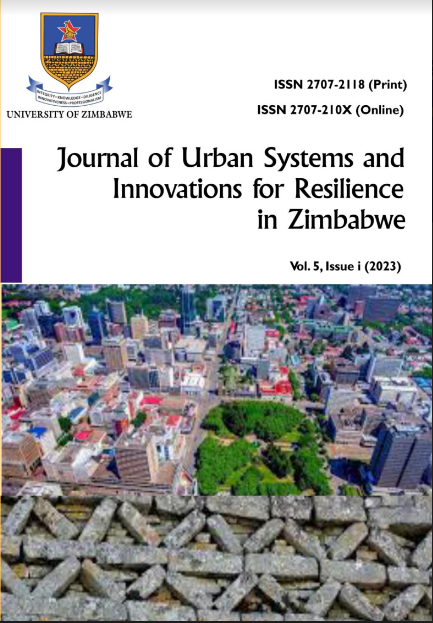Devolving Disaster Risk Management in Zimbabwe: Review of the Human Rights Based Approach
Keywords:
devolution, risk, human rights, resilience, grass roots, top-down approachAbstract
The article interrogates and unpacks contemporary disaster risk management configurations framed within the devolution approach
in Zimbabwe. While it is not a new phenomenon the world over, devolving disaster risk management in Zimbabwe is in its infancy,
hence, the scholarly review. Evidence and experiences gleaned through the literature review show that where effective disaster risk
management is transferred to the local communities in terms of decision-making, disaster preparedness, and resilience are
strengthened. The study deploys narrative inquiry within the qualitative research design which is best attuned for data generation
in post-disaster environments and theoretically is guided by the pragmatic human-rights-based approach. The narratives were
extracted from 15 research participants as well as key informants and established that the Zimbabwean system of disaster risk management has several facets that represent the failure and short-comings in being a completely devolved disaster risk management system, hence, the loss of human life, property and livelihoods. The experiences of cyclone Idai in Chimanimani District represents a systemic failure to protect and promote the rights of ordinary citizens in disaster-prone communities. The study argues that when disaster risk reduction activities are within the powers and authority of the local people, stronger communities are built and disaster preparedness is heightened, hence, the magnitude of disasters upon humanity is lowered which is the promotion of human rights at the grassroots level. The study recommends that responsibilities to manage disasters be transferred from a central authority to grass root institutions to experience realistic devolved disaster risk management.




